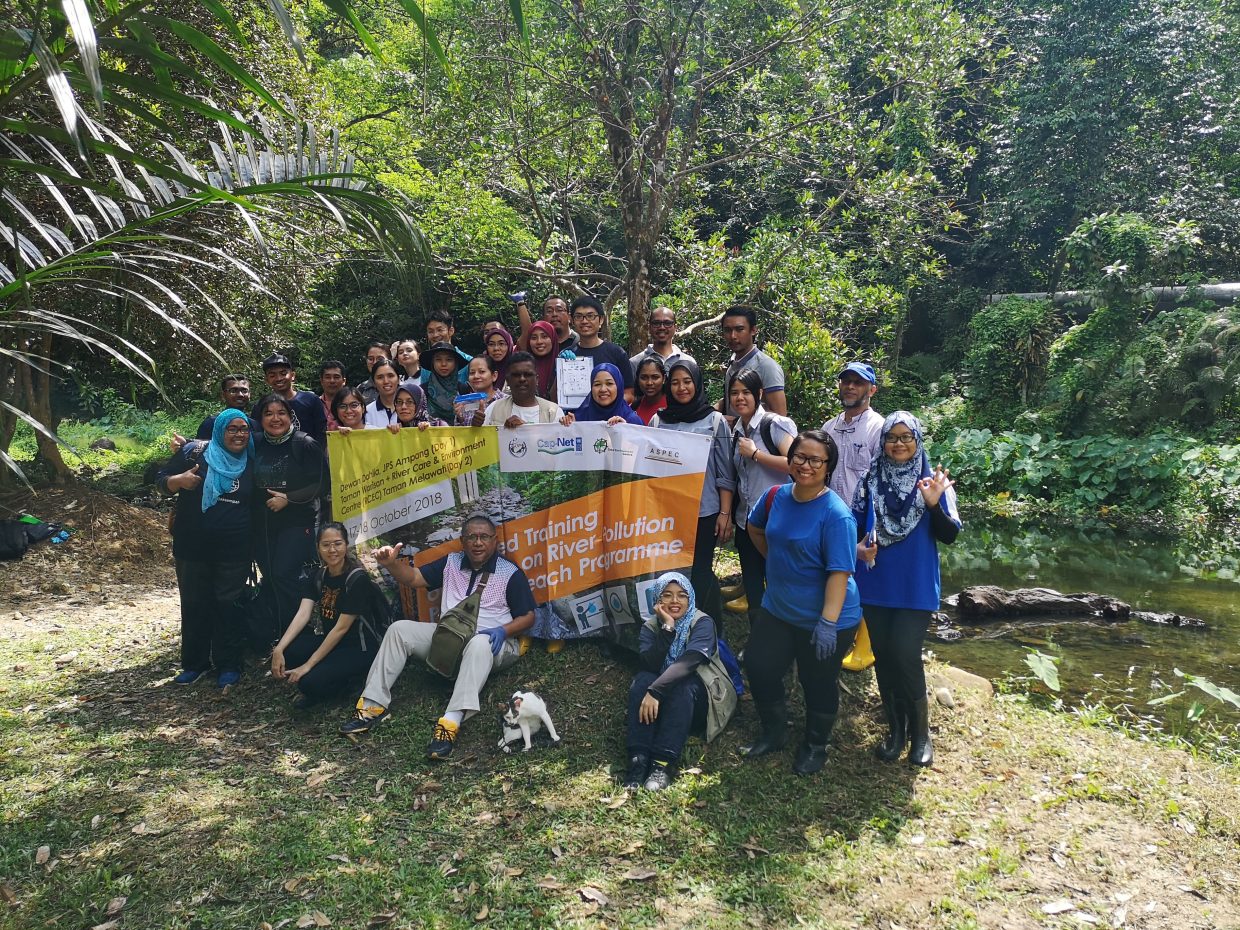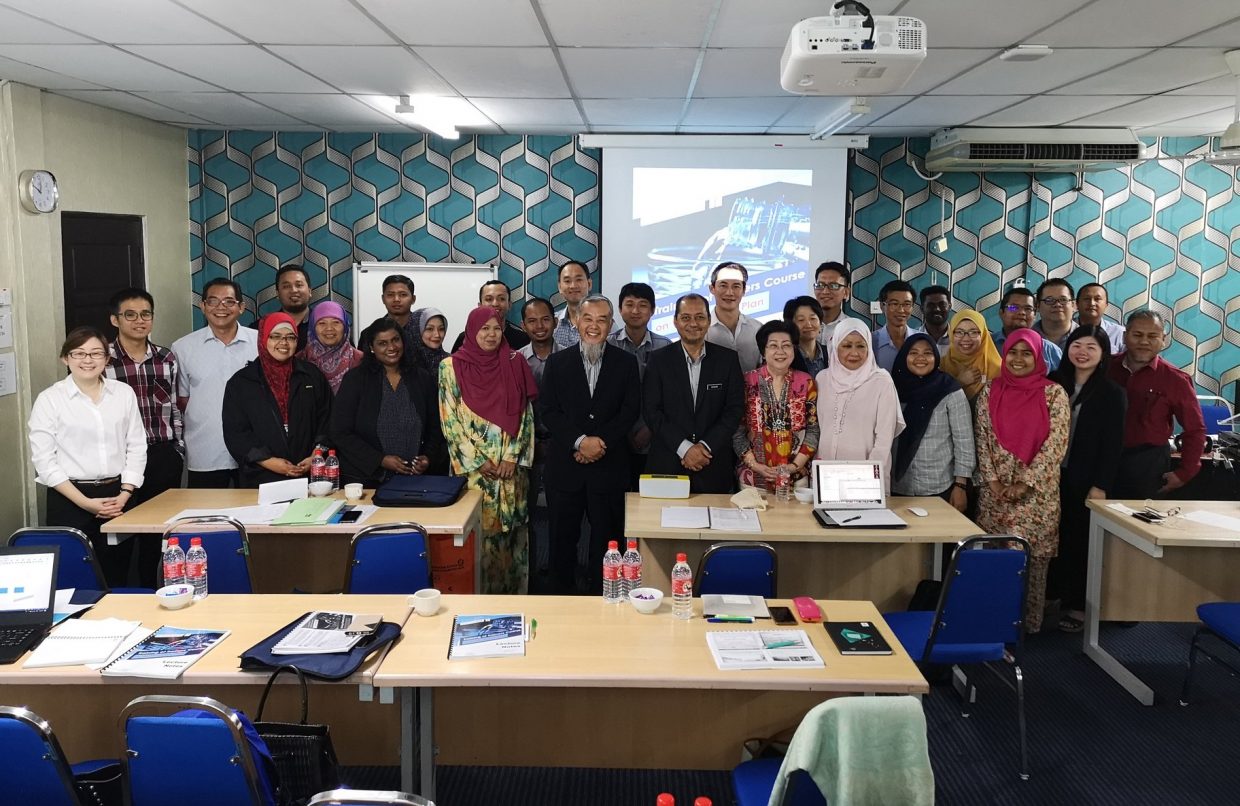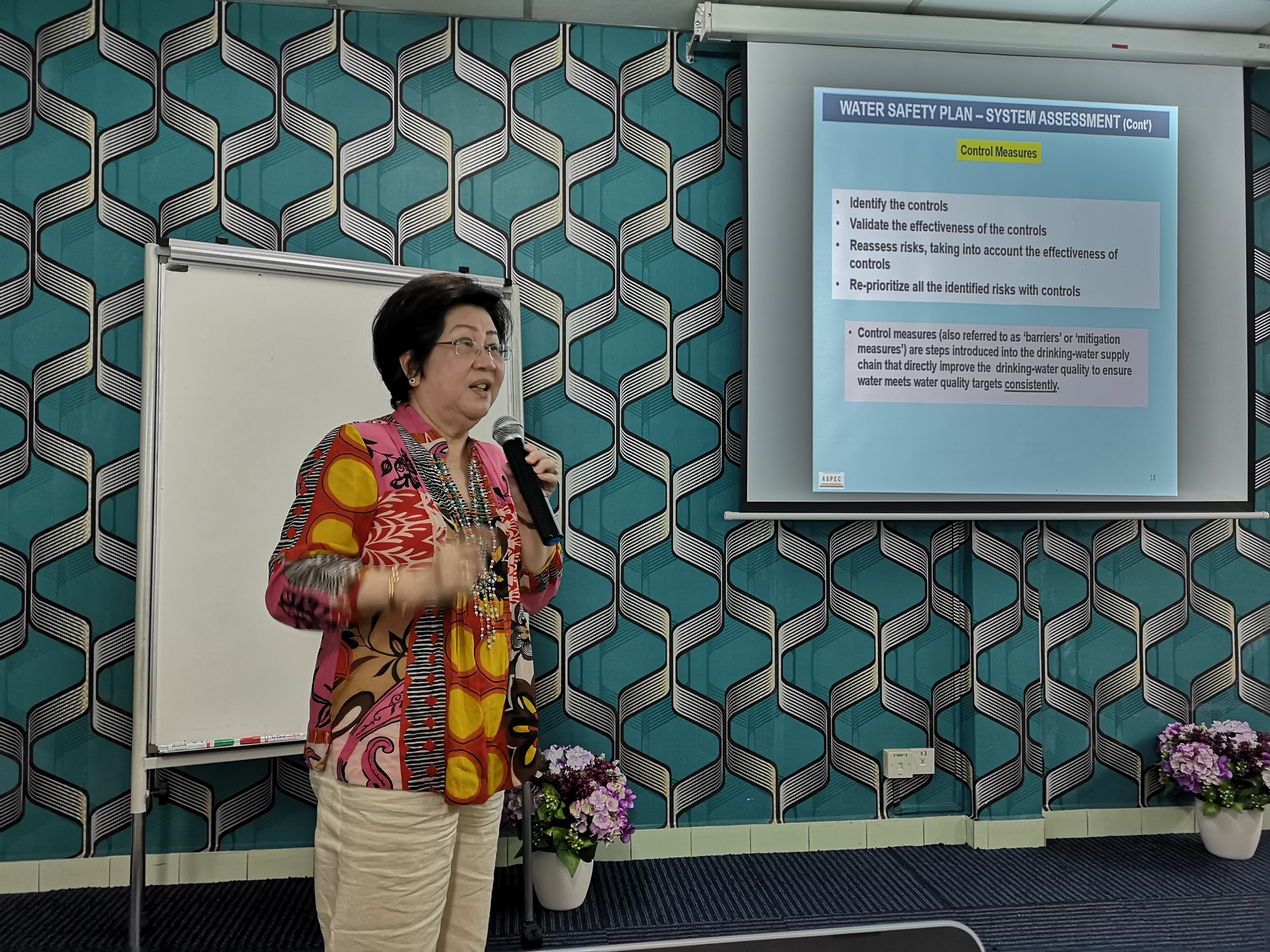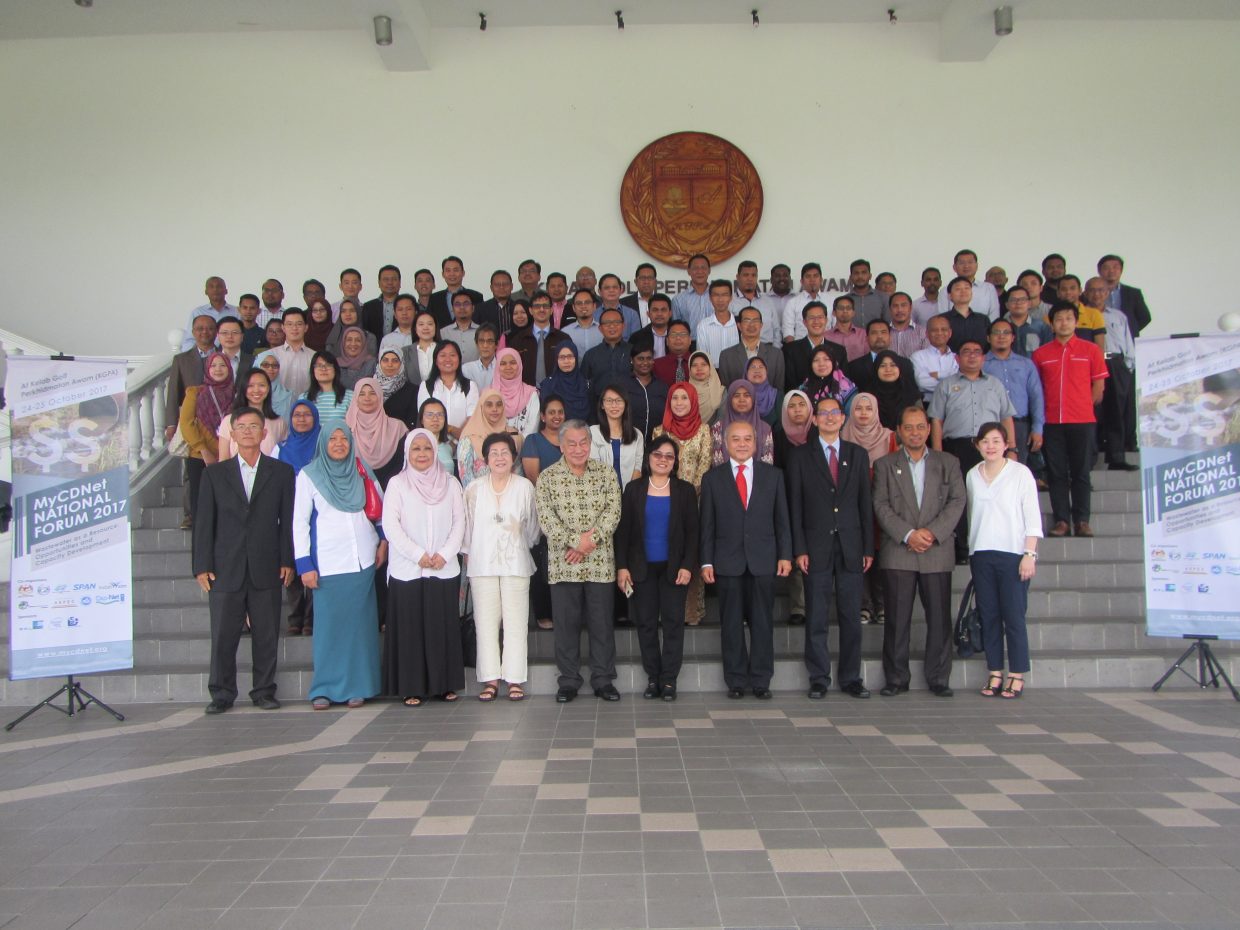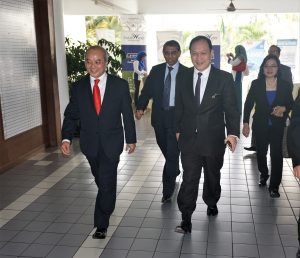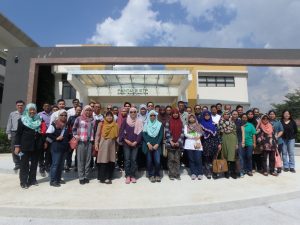Advanced ToT on River Pollution Public Outreach Programme
The Malaysian Capacity Development Network for Sustainable Water Management (MyCDNet) has organized and conducted the Advanced Training of Trainers on River Pollution Public Outreach Programme on 17 – 18 October 2018 as a follow-up training workshop on the River Pollution TOT held in November 2017. The first day was held in JPS Ampang, Kuala Lumpur, followed by the second day in the Klang River Outdoor Classroom.
This Advanced TOT was carried out in collaboration with Global Environment Centre (GEC) and Asia Pacific Environmental Consultants (ASPEC), with support from Cap-Net UNDP to capacity build water professionals, capacity builders, local authorities’ and others to safeguard the sustainability of the public outreach programmes to monitor and prevent river pollution through effective stakeholder engagement.
The first full day covered the basic information followed by case studies, lessons learnt, crises and mitigation, legislations, current technology and practices, and effective stakeholder engagement and management. Presentations by lead trainer Dr Kalithasan Kailasam and speakers from Department of Environment (DOE), Lembaga Urus Air Selangor (LUAS), Department of Irrigation & Drainage Malaysia, Local Agenda 21 Kuala Lumpur, and KUB-Berjaya Enviro were in-depth and enlightening. The day ended with some lively role-playing facilitated by Mr James Warren, Head of Section of Indah Water Training Centre.

On the second day, participants had the opportunity to get down to the pristine upstream of Klang River and received hands-on training at the Open Classroom to measure the quality of the river through physical, chemical and biological monitoring, as well as to learn the nature of a river to better appreciate it. It was followed by pollution mapping and mitigation as participants adjourned 1km downstream to the commercial and polluted parts of Klang River.
All participants gave positive feedback and especially enjoyed the outdoor learning. Some even requested for a 3-day instead of a 2-day course.
According to the DOE Environmental Report published in yearly basis, the main sources of organic water pollution are domestic and industrial sewage, effluents from agro-industries and animal husbandry. In urban and industrial areas, organic pollution of water from both point and non-point sources have resulted in environmental problems and adversely affect riverine biodiversity. Rivers which pass through urban and human settlements suffer the worst degradation and are subjected to heavy solid and liquid waste disposal from squatter settlements, drainage effluents from commercial and housing areas, food centers, wet markets, and silt loads from land clearing. Rivers need to be managed in an integrated and holistic manner involving all major stakeholders who have interest and benefits from better-managed rivers. The widespread adoption of sustainable water management requires large-scale attitude and behavioural change. The role of effective facilitators who can engage with a broad audience, translate information into meaningful terms, build real interest and a commitment to action, is powerful and effective to effect change and these were emphasized under the Advanced ToT on River Pollution Public Outreach Programme.
More photos can be viewed at https://photos.app.goo.gl/Aj1q5n5j5nRDDSys6
The full lecture slides are linked here https://drive.google.com/open?id=1QC-OmMPzYDdoBdHkFQmzwG26To3FFN3x
- Published in Education, Environment, Events, Outreach, Past Events, Stakeholder Engagement
ToT Course on Water Safety Plan 3-4 July 2018
The Malaysian Capacity Development Network for Sustainable Water Management (MyCDNet) has organized and conducted the first in a series of courses for Water Safety Plan (WSP) on 3 – 4 July 2018, held at the Indah Water Training Centre Kuala Lumpur, Malaysia, for 30 participants who were mainly from water agencies nationwide.
This WSP Course was carried out in collaboration with Specialists from the Malaysian Water Association (MWA), Universiti Malaya, Akademi Sains Malaysia and Asia Pacific Environmental Consultants (ASPEC), with support from Cap-Net UNDP.
This first WSP Introductory Course, which consists of the first five modules in a series of 15 modules in the Water Safety Plan Course, was specifically designed to assist water-related agencies and water operators to start developing their WSPs if they have not done so, or to assist those that are reviewing their WSP. Two other instalments of the WSP Course of five modules each will be rolled out by MyCDNet in the next two years.
The Deputy Network Manager for MyCDNet Tuan Haji Md Khairi Selamat opened the TOT Course on Water Safety Plan with welcoming remarks and an introduction of MyCDNet and the Course. It was an intensive two-day course covering 5 modules and 3 exercises leading to the development of a WSP by each of the 3 groups of participants. At the end of the Course, each group presented their WSP and the winning group received souvenirs from MyCDNet. The presentations were judged by MyCDNet Network Manager Dato’ Ir Lim Chow Hock and Advisor Datin Zaharah Hj Mahmud based on the WSP development criteria in Modules 1 – 5.
Module 1: What is WSP? and Module 2: Roles, Responsibilities and Legal Aspects were presented by Dr Low Kwai Sim, FASc, Advisor to MyCDNet who was certified by The Water Institute in the University of North Carolina upon completing the 10-week course on Water Safety Plans.
Module 3: Team Development in WSP was presented by Mr Mansor Abd Ghani, a water specialist from the Malaysian Water Association with vast experience in water supply and resource management and training. Dr Low continued with Module 4: Development of WSP with a segment on Water Quality and Public Health Implications Along the WSP Chain presented by Prof. Dr Victor Hoe from the Medical Faculty of University of Malaya. Lastly, Mr Mansor presented Module 5: Understanding the Hazards and Risks before the participants were given time to complete the WSP in their groups.
Participants were given ample time to do the exercises and were encouraged to ask questions and give feedbacks throughout the lectures, which made for a lively and interactive Course. Some constructive comments were noted to improve on related courses in the future. The overall positive feedbacks showed that future follow-up courses on WSP would be well attended.
At the end of the Course, Dato’ Ir Lim Chow Hock presented the souvenirs to the group members with the winning WSP and closed with a speech that highlighted the nation’s need for proper WSPs to be in place.
Water Safety Plan (WSP) is a systematic approach to address the provisions of good, safe and consumable water from water source to consumption. The value of WSP has been repeatedly highlighted as crucial for all countries of the world to adopt in order to provide safe and clean water for all in the latest revisions of the World Health Organisation (WHO) Guidelines for Drinking-Water Quality (GDWQ) (2017).
To design and produce a WSP, a thorough scientific and technological assessment of the water supply process from water source to the consumer’s tap must be carried out by the water-related agencies and water operators. Related to this, are the hazards and risks, sanitation and hygiene, all of which must also be identified in tandem with minimizing the risks at every step in the water supply chain.
Every water-related agency and operator has a duty to provide the most effective means of maintaining a safe and sustainable water supply for all aspects of human consumption that includes drinking as well as other forms of water contact that meet the regulatory water standards and basic human health.
- Published in Education, Environment, Events, Past Events
National Forum 2017 “Wastewater as a Resource: Opportunities & Capacity Development”
Following the success of the first national forum organized by MyCDNet in 2016, the National Forum 2017, with the theme Wastewater as a Resource: Opportunities & Capacity Development, saw a greater turnout totalling 123 participants from government agencies, the private sector and institutions of higher learning.
The National Forum 2017 was officially opened by the Honorable Dato’ Dr. Tan Yew Chong, Deputy Secretary General of the Ministry of Energy, Green Technology & Water (KeTTHA), on 24 October 2017 in Kelab Golf Perkhidmatan Awam (KGPA). On 25 October 2017 there was a half-day technical site visit to Pantai 2 Sewage Treatment Plant – an underground facility with a beautiful sprawling ecopark above it.
There were four keynote speeches and ample time for the Q & A sessions. The first session was chaired by Dato’ Ir. Haji Nor Hisham bin Mohd Ghazali, Director of Water Resources and Hydrology Division, Department of Irrigation & Drainage Malaysia (DID). The keynote topics were Wastewater Management and Policy in Malaysia by Mr. Muhammad Rosli Bin Muhammad Jaafar, Undersecretary Sewerage Services Industry Division, KeTTHA, and Biological Wastewater Treatment Technology by Assoc. Prof. Dr. Ma’an Fahmi Rashid Al-Khatib of the Department of Biotechnology Engineering, International Islamic University of Malaysia (IIUM).
The second session was chaired by Mr. Mohd Ridhuan bin Ismail, Chief Executive Officer of Suruhanjaya Perkhidmatan Air Negara (SPAN). The keynote topics were Leachate Treatment in Landfills in Malaysia by Mr. Ng Weng Mun, Senior Manager of SWM Environment Sdn Bhd, and Capacity Development in Water and Wastewater by Mr. Jan T.L. Yap, Chairman of AguaJaring.
Before the close of the first day, all who were present witnessed the handing over of Aguajaring’s Chairmanship by Mr Jan T.L. Yap from Indonesia to Dr Rodora H. Gamboa from Philippines, after a brief introduction about Cap-Net, AquaJaring, MyCDNet, Phil Cap-Net and CK-net by Dr. Low Kwai SIm, Advisor to MyCDNet and Aguajaring.
The site visit to Pantai 2 Sewage Treatment Plant on Day 2 was a first for many participants, especially those from out of state, as the facility is relatively new. It was an informative and memorable half-day out. Heartfelt thanks to Indah Water Konsortium Sdn Bhd (IWK) for organizing and facilitating the visit.
MyCDNet thanks the Honourable Dato’ Dr. Tan Yew Chong, hosts, sponsors, facilitators, speakers, participants, and co-organizers – KeTTHA, DID, SPAN, IWK, Global Environment Centre, Asia Pacific Environmental Consultants Sdn Bhd, Malaysian Water Association – for their time, energy and support in making this Forum a success. Here’s to more and better trainings and activities.
Speakers’ slides and more photos can be viewed at https://drive.google.com/open?id=0B8R9OBjm4m3vdTBza3QyVWlyWWs
- Published in Education, Environment, Events, Past Events


